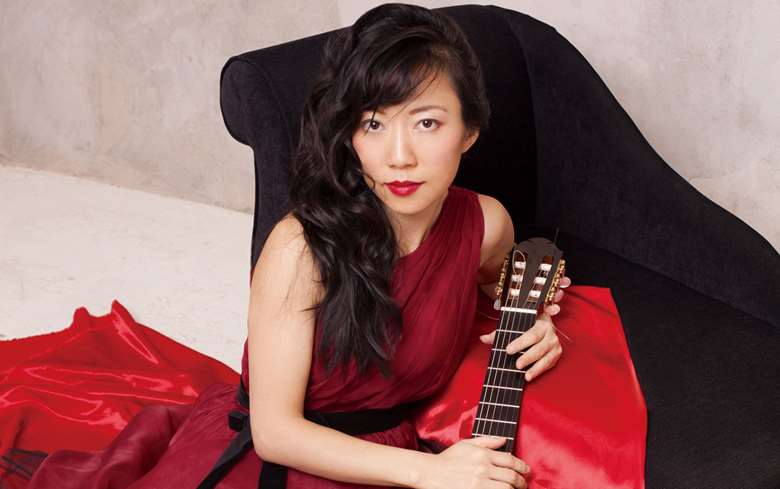A celebration of Chinese and British orchestral music with the LPO at Cadogan Hall
SponsoredFriday, April 7, 2023
Music can facilitate understanding between cultures like nothing else - we just have to listen, as a concert in London sets out to prove

Eastern and Western cultures have always enjoyed a fruitful musical exchange, safe in the knowledge where words fail, music speaks, and with consistent eloquence.
Way back in the nineteenth century, Chinese symphony orchestras were playing European music, those orchestras often staffed partly by European musicians. These days, the tables have turned quite considerably. Increasingly, orchestras in San Francisco, London and Munich get their world-class musicians from cities like Beijing, Shanghai and Guangzhou, to name a few. There can be little doubt, in which part of the world music education is thriving most.
So it seems only fitting that as western classical music continues its crescendo of popularity in China, orchestras in the west explore the wealth of music being created by Chinese artists. Eminent Chinese and Chinese-born composers, including Tan Dun, Chen Qigang and Huang Ruo, have a significant presence in the concert halls. There are plenty more such voices to discover.
Image China’s concert at Cadogan Hall on April 13 seeks to celebrate their works – and to extend the East-West dialogue by uniting one of the UK’s most distinguished symphony orchestras with the conductor, soloists, and composers from China. The music, naturally, will come from both countries.

Qian Junping (photo: Neda Navaee)
Leading the performance at Cadogan Hall is Qian Junping, a fast-rising Chinese conductor and the First Prize winner of the 2017 Bucharest International Conducting Competition, known for his work with the Royal Scottish National Orchestra. He leads an eclectic programme of music amplifying the idea of cultural exchange, from Elgar’s celebration of London bustle Cockaigne to Tan Dun’s ‘Internet Symphony’ Eroica.
At the heart of the concert are appearances from two outstanding Chinese soloists. Xuefei Yang is a musical pioneer – the first internationally acclaimed Chinese guitarist on the world stage. Xuefei shot to fame in the early 2000’s signing with both Askonas Holt and EMI (now Warner Classics). Her musical interests span a diverse range of solo, chamber and orchestral projects, and include a collaboration with Ian Bostridge. A keen advocate for broadening the guitar repertoire, her contribution includes a ground-breaking recording of Chinese works, ‘Sketches of China.’ In a 2020 review in Gramophone, our critic William Yeoman wrote that Xuefei Yang’s playing ‘can best be compared to the spontaneity and control of a master calligrapher.’
Here Xuefei brings us two of the many works written for her. The enchanting final movement of John Brunning’s Magna Carta guitar concerto, and a miniature postcard from China in the form of A Lovely Rose, Fu Renchang’s arrangement of the traditional Xinjiang folk song for guitar and orchestra, music full of delicacy and finesse. Xuefei wrote her own cadenzas for both pieces – the first based on British folk tunes; the second inspired by the sound of plucked instruments from Xinjiang.

Ning Feng (photo: Zhang Tianyou)
In a concert of not one but two soloists, world-renowned violinist Ning Feng will join the LPO for a performance of Violin Concerto No 1 by Zhao Jiping, one of the most distinguished Chinese composers on the world stage and Honorary Chairman of the Chinese Musicians’ Association. Zhao’s works are unmistakably Chinese yet speak to the world and his concerto is a case in point: a work of huge imagination and intense beauty. Described by The Washington Post as ‘a wonderful player with a creamy, easy tone and an emotional honesty’, Feng performs across the globe with major orchestras and conductors, and in recital and chamber concerts in some of the most important international series and festivals. Feng is no stranger to Gramophone’s pages either, with Rob Cowan concluding in 2021 that his performance of Paganini’s 24 Caprices was ‘up there with the best of them.’
Few works embody the spirit of dialogue and togetherness like Tan Dun’s Internet Symphony Eroica, which was written for performance by musicians in all corners of the world, brought together by the internet, in 2008. The work includes a fragment of Beethoven’s iconic Eroica symphony and also scored music for automobile parts including disc breaks. Performances at Carnegie Hall and the Barbican in London have since proved that this music has an even more powerful effect when played live in the concert hall as when played by a ‘virtual’ orchestra online.

London Philharmonic Orchestra (photo: Benjamin Ealovega)
The concert opens with music by a pivotal figure in the history of Chinese music. Wang Xilin taught himself an array of instruments before enrolling at the Shanghai Conservatory. He went on to write a canon of works influenced as much by the likes of Shostakovich and Bartók as by Chinese traditional music.
Xilin wrote his Yunnan Symphonic Poem, which has been performed around the world and for which he was awarded the highest cultural prize of the Chinese government. The movement ‘The Torch Festival’ is a vibrant, rousing piece bursting with light and colour – a firecracker of an opening for a concert that promises to be like none other.
Find out more about the Image China – East Meets West concert here: cadoganhall.com








